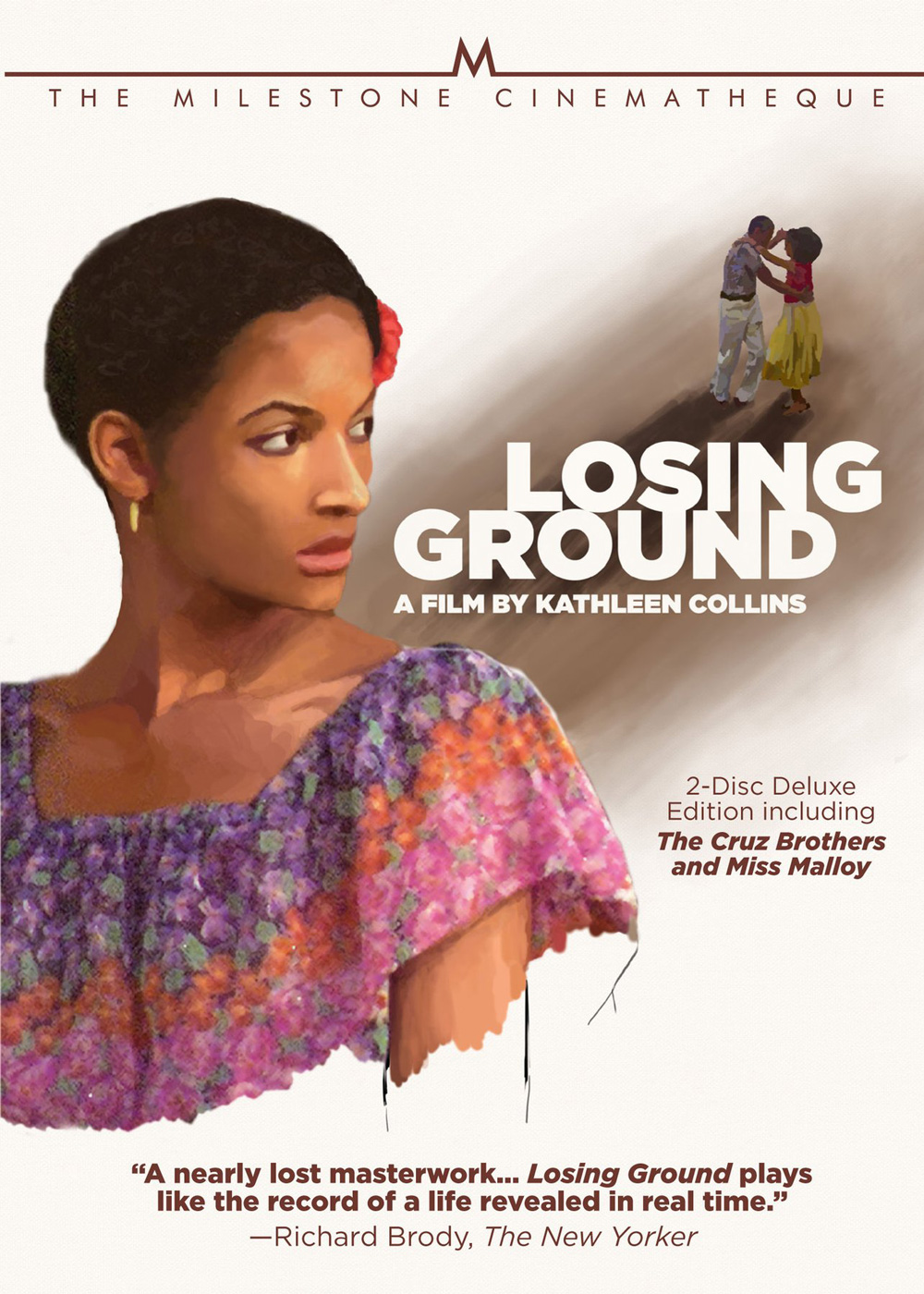Four Portraits – Losing Ground [In-Person Only]
$13 General Admission
$10 Student/Child/Senior
$7 Member
⚠️ Public safety notice ⚠️
NWFF patrons will be required to double-mask while in the building. Disposable masks are available at the door for those who need them. To be admitted, patrons ages 5+ will also be required to present EITHER proof of COVID-19 vaccination OR a negative result from a COVID-19 test administered within the last 48 hours by an official testing facility. Boosters are strongly recommended, though not required for entry.
NWFF is adapting to evolving recommendations to protect the public from COVID-19. Read more about their policies regarding cleaning, masks, and capacity limitations here.
About
In Losing Ground, a philosophy professor finds new purpose and meaning in her life while entering a crossroads in her marriage. Directed by Kathleen Collins, this film is widely considered as one of the first narrative features directed by an African American woman.
** Co-presented with Sankofa Film Society. **
Funny, brilliant and personal, Losing Ground should have ranked high in the canon of indie cinema. But the early 1980s was not an easy time for independent filmmakers – much less Black, independent, women filmmakers – and the film was never theatrically released. It was shown once on PBS’s American Playhouse, and then it effectively disappeared. Twenty-five years after her mother’s death, Nina Collins rescued the original negative and created a beautiful new digital master of her mother’s film. Losing Ground now looks and sounds as fresh, bracing and complex as it did when it was first filmed. It is a testament to Kathleen Collins’ incredible talent and a lasting treasure of African American and women’s cinema. – Stills and partial synopsis courtesy of Milestone Films.
(Kathleen Collins, US, 1982, 86 min, in English)
“The film ends in a way few films about black life do: on a note of ambiguity. Black people are emotionally tangled, intelligent, stylish, hungry, barbed. In Losing Ground, they are neither saints nor sinners — they are achingly, beautifully human.” – Vulture
“As an East Coaster, Collins didn’t emerge from the celebrated L.A. Rebellion film movement of the time, but her work certainly contributed to a new generation of upstart African and African American filmmakers responsible for an emerging “Black Cinema” that acted as an alternative to dominant classical Hollywood moviemaking – especially where representations of people of African descent were concerned. And for a black woman, that was a noteworthy feat, when black women filmmakers were all-but invisible.” – Tambay Obenson, IndieWire




Four Portraits: Films by African American Women Directors
This February, we present four cinematic portraits, written and directed by African American women directors. The stories told in the series – of a college professor, a queer filmmaker and historian, an aspiring pro basketball player, and a teenage girl coming of age in a Louisiana family thick with secrets and history – shout out the broadly different experiences of Black women living in the United States.
This palette of historically and artistically significant films – all but Love & Basketball were recently selected for preservation in the National Film Registry by the Library of Congress – are a salute to the past, present, and future of Black women in cinema.
Feb. 9 | Losing Ground (1982), the first dramatic feature directed by an African American woman since the 1920s. (NFR selection: 2020)
Feb. 10 | The Watermelon Woman (1996) (NFR selection: 2021)
Feb. 23 | Love & Basketball (2000), just added to the Criterion Collection in 2021.
Feb. 24 | Eve’s Bayou (1997) (NFR selection: 2018)

About Sankofa Film Society
Founded by Karen Toering and Jackie Moscou, former Artistic Director of Langston Hughes Performing Arts Institute, Sankofa Film Society continues Moscou and Toering’s advocacy of independent films by people of color and women filmmakers. Sankofa Film Society believes that those most impacted are the best caretakers of their own stories.
Sankofa Film Society is also the Seattle home for films from ARRAY, the independent distribution company founded by Ava DuVernay.
Look here first for provocative indie film and discussion, opportunities for membership, travel and a wide variety of ways to connect in community with melanin-rich films.